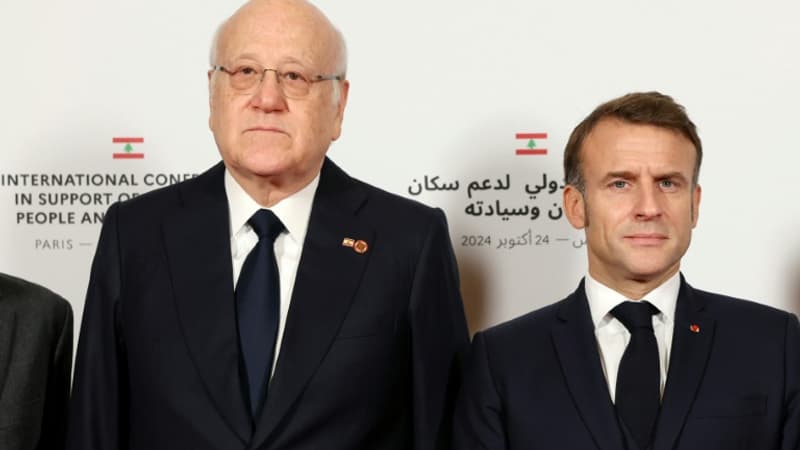The international community “was up to the financial challenge,” according to Paris. The conference for Lebanon, initiated by President Emmanuel Macron, raised $1 billion for the Lebanese and their army, in the absence of diplomatic progress.
“We responded to the call of the United Nations by announcing important contributions, to which are added 800 million dollars important contributions in kind,” greeted the head of French diplomacy, Jean-Noël Barrot.
Some 200 million will be allocated to the Lebanese army. Not counting aid in kind.
“The urgency of a diplomatic solution”
This is double France’s initial objective and much more than the 400 million requested by the UN at the beginning of October, of which until now it had only received 15%, according to the UNDP.
If President Emmanuel Macron urged to end hostilities in Lebanon “as soon as possible”, the absence of support from the two main protagonists, Israel and Iran, for the Islamist movement Hezbollah, immediately jeopardized any significant advance at the diplomatic level. .
And the fighting continued on Thursday: Israel attacked Hezbollah weapons depots while the Islamist movement claimed rocket fire into northern Israel and reported “point-blank” fighting in southern Lebanon.
Jean-Noël Barrot stressed, however, that the participants, coming from 70 countries, had “agreed on the urgency of a diplomatic solution”, which involves the full implementation of resolution 1701, “with a cessation of hostilities on both sides of the border”.
This United Nations resolution, which marked the end of the previous war between Israel and Hezbollah in 2006, stipulates that peacekeepers and the Lebanese army should only be deployed in southern Lebanon, on the border with Israel.
The idea now is to deploy Lebanese soldiers “massively” in this area, “to reinforce the capacity of UNIFIL”, the UN force deployed in southern Lebanon, stressed Jean-Noël Barrot, while Macron estimated that it will not be possible return to status. quo.
The international community must “support efforts to end ongoing aggression and implement an immediate ceasefire,” declared Lebanese Prime Minister Najib Mikati.
“I am not sure that we defend a civilization by sowing barbarism ourselves”
The United States is the largest contributor with an endowment of 300 million dollars, ahead of France (108 million) and Germany (103).
“We demand that Hezbollah stop its (…) indiscriminate attacks” against Israel, said the French president.
“We talk a lot about a war of civilization (…) I am not sure that we defend a civilization by sowing barbarism ourselves,” he also said in reference to Benjamin Netanyahu, who claims to defend Judeo-Christian civilization in the Israeli struggle. in Gaza or Lebanon.
The head of European diplomacy, Josep Borrell, stressed that “the number of civilians injured in Lebanon is unacceptable.”
In an audiovisual speech, UN Secretary General Antonio Guterres called on “Lebanese leaders to take decisive measures to ensure the proper functioning of state institutions.”
Jean-Noël Barrot also urged them to urgently elect a president while the vacancy lasts almost two years. “It is inconceivable today to leave Lebanon without a president” because “this is the condition to preserve the very existence of the Lebanese State,” he stated.
Paralyzed for years by a political and economic crisis, Lebanon is now the scene of a war between Hezbollah, supported by Iran, and Israel.
The fighting has displaced more than 800,000 people, according to the UN. In Israel, 60,000 people also had to flee their homes over the past year due to Hezbollah attacks.
In a joint appeal, more than 150 NGOs, including Oxfam and the Danish Refugee Council (DRC), denounced “the international community’s flagrant disregard for international law”, which has allowed “the complete impunity of the Israeli government in Gaza , in the West Bank and now in Lebanon.
The Paris conference is, in this sense, an “instrumentalization” of “humanitarian reason”, “a form of moral screen” used by participants “to avoid reaching the difficult end and fundamentally questioning partnerships, in particular in the face of – towards the State of Israel,” Jean-François Corty, president of Doctors of the World, told the press.
At least 1,552 people have been killed in Lebanon in one month, according to an AFP tally based on official data.
Source: BFM TV


